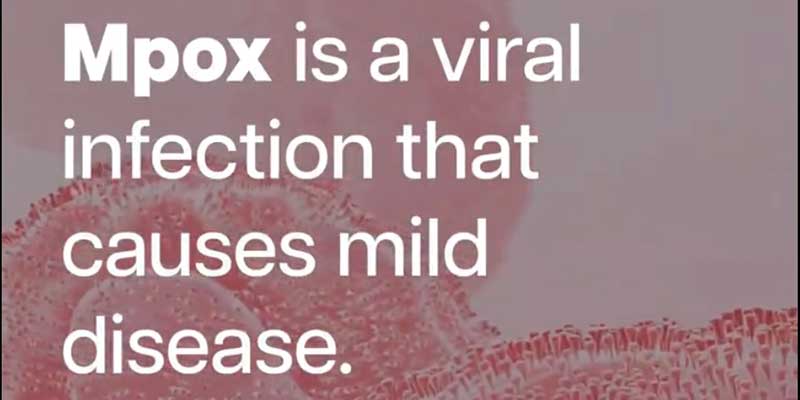- World
- Apr 19
Africa CDC and WHO update strategy to curb mpox
• Africa Centres for Disease Control and Prevention (CDC) and the World Health Organisation (WHO) have updated their joint Continental Response Plan for the mpox emergency as the disease continues to affect new areas.
• The revised strategy focuses on controlling outbreaks, while expanding vaccination coverage and transitioning toward a longer-term, sustainable response.
• The WHO has declared mpox outbreak as a ‘public health emergency of international concern’ (PHEIC).
What is mpox?
• Mpox (monkeypox) is an infectious disease caused by the monkeypox virus (MPXV).
• Mpox virus belongs to the Orthopoxvirus genus in the family Poxviridae. The Orthopoxvirus genus also includes variola virus (which causes smallpox), vaccinia virus (used in the smallpox vaccine), and cowpox virus.
• Mpox has symptoms similar, but less severe, to smallpox. While smallpox was eradicated in 1980, mpox continues to occur in countries of central and west Africa.
• Mpox is zoonosis: a disease that is transmitted from animals to humans.
• Mpox was formerly called monkeypox. Following a series of consultations with global experts, WHO began using “mpox” as a synonym for monkeypox.
• Monkeypox was first discovered in 1958 when outbreaks of a pox-like disease occurred in monkeys kept for research, hence the name ‘monkeypox’.
• The first human case was recorded in 1970 in the Democratic Republic of the Congo (then known as Zaire), and since then the infection has been reported in a number of central and western African countries. Most cases are reported from Congo and Nigeria.
• In 2003, monkeypox was recorded in the United States when an outbreak occurred following importation of rodents from Africa. Cases were reported in both humans and pet prairie dogs. All the human infections followed contact with an infected pet and all patients recovered.
• Mpox is endemic in densely forested regions of West, Central and East Africa, particularly in the northern and central regions of Congo.
• Mpox outbreaks are caused by different viruses called clades. Clade 1 has been circulating in Congo for years, while clade 2 was responsible for the global outbreak which began in 2022.
• In late 2023, yet another viral strain, clade 1b, began spreading.
• This prompted the Africa CDC to declare a Public Health Emergency of Continental Security and the WHO Director-General to declare a Public Health Emergency of International Concern in August 2024.
• By August 2024, the virus had begun spreading from the Democratic Republic of the Congo to four neighbouring countries.
• Later, 28 countries around the world have reported cases of mpox due to clade 1b.
• Since the declaration of the emergency, both regional and global support has increased, particularly for the Democratic Republic of the Congo, the epicentre of the outbreak.
• Vaccination efforts are underway, with more than 650,000 doses administered in six countries, 90 per cent of which have been administered in the Democratic Republic of the Congo. Overall, over a million doses have been delivered to 10 countries, with efforts ongoing to secure additional vaccine supplies.
Major challenges
Ongoing conflict and insecurity in eastern Democratic Republic of the Congo, where the incidence of mpox remains high, as well as humanitarian aid cuts, continue to limit the public health response and restrict access to essential services. Across countries and partners, over $220 million is needed to fill funding gaps for the mpox response.
Updated Continental Response Plan
• The updated Continental Response Plan calls for intensified efforts to bring outbreaks under control, while also taking concrete actions to integrate mpox into routine health services.
• Along with the Continental Response Plan for Africa, WHO has updated the global strategic plan to curb human-to-human transmission of mpox.
• In the first two months of 2025, as many as 60 countries reported mpox, with the majority of cases and deaths reported from the African continent. The joint Continental Response Plan is aligned with the global strategy.
• Africa CDC and WHO continue to work closely with national governments, local communities, and partners to curb transmission, control the outbreak, and build longer-term resilience within public health systems.
Manorama Yearbook app is now available on Google Play Store and iOS App Store


